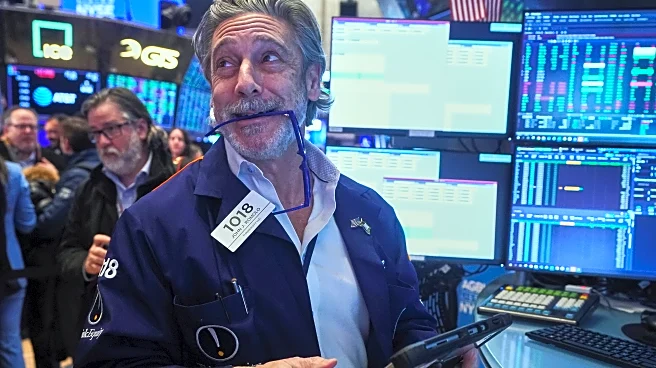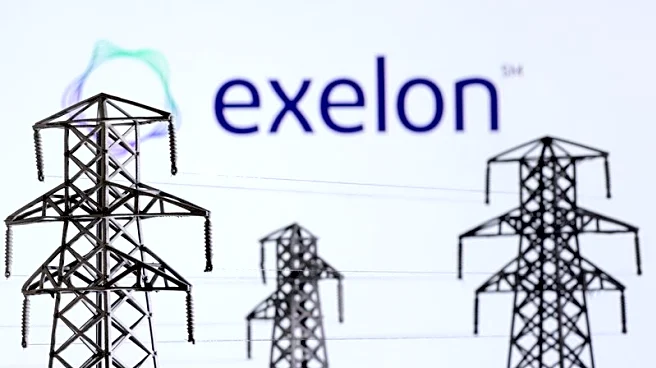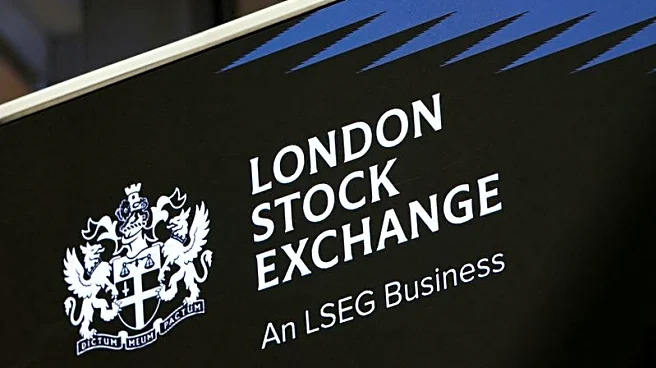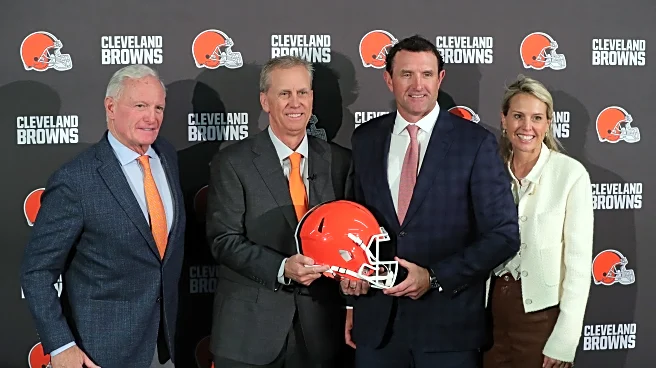What's Happening?
Rapper Kanye West, who now goes by Ye, has issued a public apology to New York City Rabbi Yoshiyahu Yosef Pinto for his past antisemitic remarks. West attributed his behavior to struggles with bipolar disorder, which he claims led him to make extreme
statements. The apology comes after a series of controversial actions by West, including releasing a song praising Adolf Hitler and making antisemitic comments on social media. During a meeting with Rabbi Pinto, West expressed 'profound remorse' and emphasized his desire to take accountability for his actions. Rabbi Pinto, through a translator, responded by acknowledging West's efforts to correct his mistakes, highlighting the importance of learning and building bridges of love and peace.
Why It's Important?
Kanye West's apology is significant as it addresses the backlash he faced for his antisemitic remarks, which had severe repercussions on his career and public image. His statements had previously led to the loss of major business partnerships and widespread condemnation. By attributing his behavior to bipolar disorder, West brings attention to the impact of mental health issues on public figures and their actions. This development may influence public discourse on mental health and accountability, particularly in the entertainment industry. Rabbi Pinto's acceptance of West's apology and his emphasis on forgiveness and reconciliation could also play a role in mending relations between West and the Jewish community.
What's Next?
Following his apology, Kanye West may seek to rebuild his public image and professional relationships. His acknowledgment of mental health issues could lead to increased advocacy or initiatives related to mental health awareness. The entertainment industry and public may closely watch West's future actions to assess the sincerity of his apology and his commitment to change. Additionally, Rabbi Pinto's response may encourage other community leaders to engage in dialogue and reconciliation efforts with West.
















